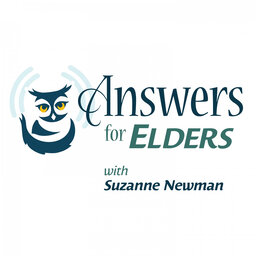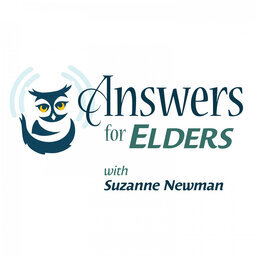How to Deal With Threats to Discharge Your Loved One, Part 1
Seniors, Special Needs & The Law
Top MONEY AND LAW podcasts! Medicare, Medicaid, Estate Planning, Advance Directives, and SO much more on Answers for Elders. Suzanne Newman, host o…We sign all sorts of paperwork when a senior loved one is admitted to a nursing home, assisted living, or memory care community. But often we don't know what we're signing. Elder law attorney Jim Koewler joins Suzanne to explain exactly what we're signing, and helps us spot legal red flags in the paperwork.
This segment focuses on a care facility's threats to discharge or evict a loved one. These rules apply to communities that take Medicare or Medicaid, regardless of whether your loved one is using those programs. If they're private pay, if there's a problem along the way, these laws may still apply:
Must give 30 days advance notice, unless
- Resident's health has improved
- Resident hasn't yet been there for 30 days
- Health or Safety Emergency to anyone in the facility
- Medical Emergency for Resident (Hospitalization)
Must still give notice as early as is practical
The "health or safety emergency" is often used in cases where a resident has improperly touched or threatened others.
The notice of discharge must contain:
- Reason for proposed discharge
- Proposed date of discharge
- Proposed new care facility
- Right to a hearing and how to request it
- Long-Term Care Ombudsman contact information
The proposed new facility may not be the site where the loved one ends up going, because of circumstances that happen in the ensuing 30 days, but a site must be proposed.
While preparing to discharge:
- A new place must be able to meet care needs
- New place needs to agree to take the personNot necessarily at time of notice of dischargeRequired at time of actual discharge
- Old place must ensure a safe, orderly discharge
Given the threat of discharge to your residence, anyone challenging the discharge should say that your residence is unable to meet care needs, or else the hearing officer can assume whatever is on the notice is appropriate. They may say you have to come and take your loved one, but no, that is not a safe discharge. They have to make transportation arrangements.
The ombudsman should give you this information, but we don't know that they will, or how much they know. Services in the Seattle area such as Sound Generations and Homage Senior Services help seniors with discharges and qualifying for Medicaid. Reach out to your city or county departments of aging but
Watch on YouTube to see slides from Jim's presentation. Learn more about Jim Koewler at his website.
 Answers for Elders
Answers for Elders



